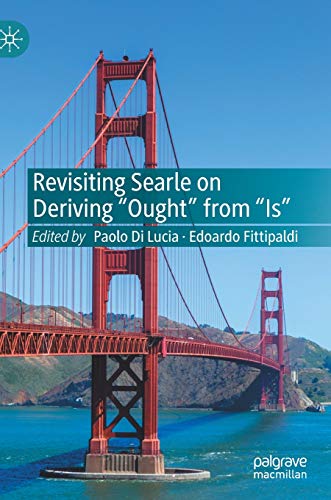

Most ebook files are in PDF format, so you can easily read them using various software such as Foxit Reader or directly on the Google Chrome browser.
Some ebook files are released by publishers in other formats such as .awz, .mobi, .epub, .fb2, etc. You may need to install specific software to read these formats on mobile/PC, such as Calibre.
Please read the tutorial at this link: https://ebookbell.com/faq
We offer FREE conversion to the popular formats you request; however, this may take some time. Therefore, right after payment, please email us, and we will try to provide the service as quickly as possible.
For some exceptional file formats or broken links (if any), please refrain from opening any disputes. Instead, email us first, and we will try to assist within a maximum of 6 hours.
EbookBell Team

4.1
90 reviewsThis book reconsiders the supposed impossibility of deriving "Ought" from "Is". John R. Searle’s 1964 article How to Derive "Ought " from "Is’’ sent shockwaves through the philosophical community by offering a straightforward counterexample to this claim of impossibility: from your promising something- and this is an "is" - it simply follows that you "ought" to do it. This volume opens with a brand new chapter from Searle who, in light of his subsequent philosophical developments, expounds the reasons for the validity of that derivation and its crucial significance for social ontology and moral philosophy. Then, in a fresh interview with the editors of this volume, Searle explores a range of topics including how his derivation relates to constitutive rules, and how he views Wittgenstein’s philosophy, deontic logic, and the rationality of action.
The remainder of the volume is dedicated to a deep dive into Searle’s essay and its implications by international scholars with diverse backgrounds ranging from analytic philosophy, phenomenology, and logic, to moral philosophy and the philosophy and sociology of law. With thirteen original chapters, the contributors provide fresh and timely insights on hotly debated issues: the nature of "Ought"; the logical structure of the social world; and the possibility of deriving not only "Ought" from "Is", but "Is" from "Ought".